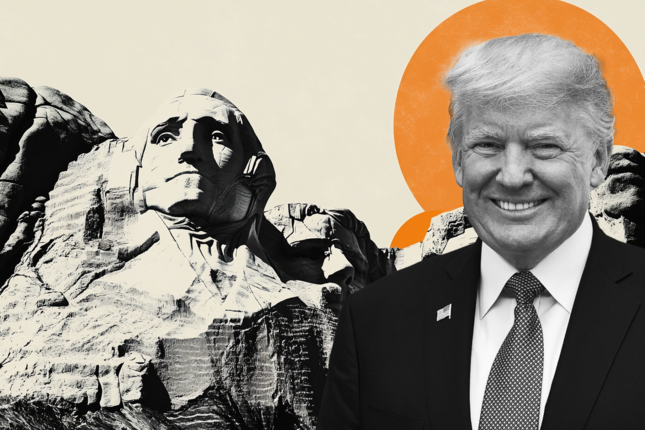Dollar Index Spot Exchange rate
Editors’ Picks

EUR/USD hits 1.1750, two-day highs
EUR/USD remains well bid and trades near two-day highs around 1.1750 on Thursday, undoing the modest pullback seen in the previous session. The pair is drawing support from a better risk backdrop, helped by easing EU–US trade tensions, as well as a softer US Dollar following the release of US PCE data.

GBP/USD challenges two-week highs near 1.3500
GBP/USD is picking up fresh momentum and confronting two-week tops near the 1.3500 yardstick on Thursday. In doing so, Cable is brushing off Wednesday’s brief stumble and getting back on its upward track, supported by continued selling pressure on the Greenback.

Gold remains bid and targets $4,900
Gold is extending its rally on Thursday, approaching the area of record highs near $4,880 per troy ounce as the US Dollar pulls back. The move comes even as global risk appetite improves, after President Trump reversed course on Greenland, helping to ease broader geopolitical tensions.

Crypto Today: Bitcoin, Ethereum, XRP post modest gains as ETF selling pressure intensifies
Bitcoin rises marginally above $90,000, but intense ETF selling pressure continues to weigh on the asset. Ethereum trades around $3,000 amid broader crypto market volatility and waning institutional interest. XRP ticks up for the second consecutive day despite subdued retail demand.

Trump walks back NATO tariffs, signals de-escalation
What began as a sharp escalation risk quickly turned into a de-escalation signal. Earlier this week, markets briefly priced in escalation risk after Donald J. Trump proposed a 10% tariff hike on eight NATO nations amid the Greenland dispute.
Majors
Cryptocurrencies
Signatures
ABOUT THE US DOLLAR INDEX
The US Dollar Index (DXY, USDX) measures the value of the United States Dollar relative to a basket of foreign currencies. It is a weighted geometric mean of the dollar’s value relative to the following select currencies: Euro (57.6% weight), Japanese Yen (13.6%), British Pound (11.9%), Canadian Dollar (9.1%), Swedish Krona (4.2%) and Swiss Franc (3.6%).
The index started in 1973, following the dissolution of the Bretton Woods system, with a base value of 100.00. Values are relative to this base – for instance, a current reading of 99.800 would indicate that the dollar has depreciated by 0.2% since the start of the index.
While the Dollar Index is a geometrically weighted index rather than trade-weighted, it is concentrated in European currencies and excludes two of the US’ top trading partners, Mexico and China. As a result, it is primarily used as a speculative tool rather than by corporates or asset managers like mutual funds, insurance companies or endowments. Additionally, the geometric mean methodology artificially undervalues the USD over time.
US Dollar Index on Wikipedia
HISTORIC HIGHS AND LOWS FOR THE US DOLLAR INDEX
- All-time records: Max: 164.72 on 24/02/1985 - Min: 70.70 on 16/03/2008
- Last 5 years: Max: 114.78 on 23/09/2022 - Min: 89.21 on 05/01/2021
* Data as of December 2024
INFLUENTIAL ASSETS FOR THE US DOLLAR INDEX
- Currencies: The US Dollar (USD), the Euro (EUR), the Japanese Yen (JPY) and the Chinese Yuan (CNY).
- Commodities: Oil, Gold and Natural Gas.
- Bonds: T-Bond (a marketable and fixed-interest US government debt security).
- Indices: S&P 500 (American stock market index based on the market capitalizations of 500 large companies having common stock listed on the NYSE or NASDAQ) and Dow Jones (DJIA or Dow Jones Industrial Average, an index tracking the performance of 30 large publicly-owned companies during a standard trading session)
INFLUENTIAL ORGANIZATIONS AND ECONOMIC DATA FOR THE US DOLLAR INDEX
- The Federal Reserve (Fed) is the central bank of the United States (US) and it has two main targets: to maintain the unemployment rate at its lowest possible levels and to keep inflation around 2%. The Federal Reserve System's structure is composed of the presidentially appointed Board of Governors and the partially appointed Federal Open Market Committee (FOMC). The FOMC organizes eight scheduled meetings in a year to review economic and financial conditions. It also determines the appropriate stance of monetary policy and assesses the risks to its long-run goals of price stability and sustainable economic growth. The FOMC Minutes, which are released by the Board of Governors of the Federal Reserve weeks after the latest meeting, are a guide to the future US interest-rate policy.
- The US Government and its Treasury Department impact the US Dollar Index. Events such as administration statements, budgets, new laws and regulations or fiscal policy can increase or decrease the value of the DXY.
- US Gross Domestic Product (GDP) refers to the total market value of all final goods and services produced in the United States. It serves as a gross measure of market activity, indicating the pace at which the nation's economy is growing or contracting. Generally, a high reading or better-than-expected number is considered positive for the Dollar Index, while a low reading is seen as negative.